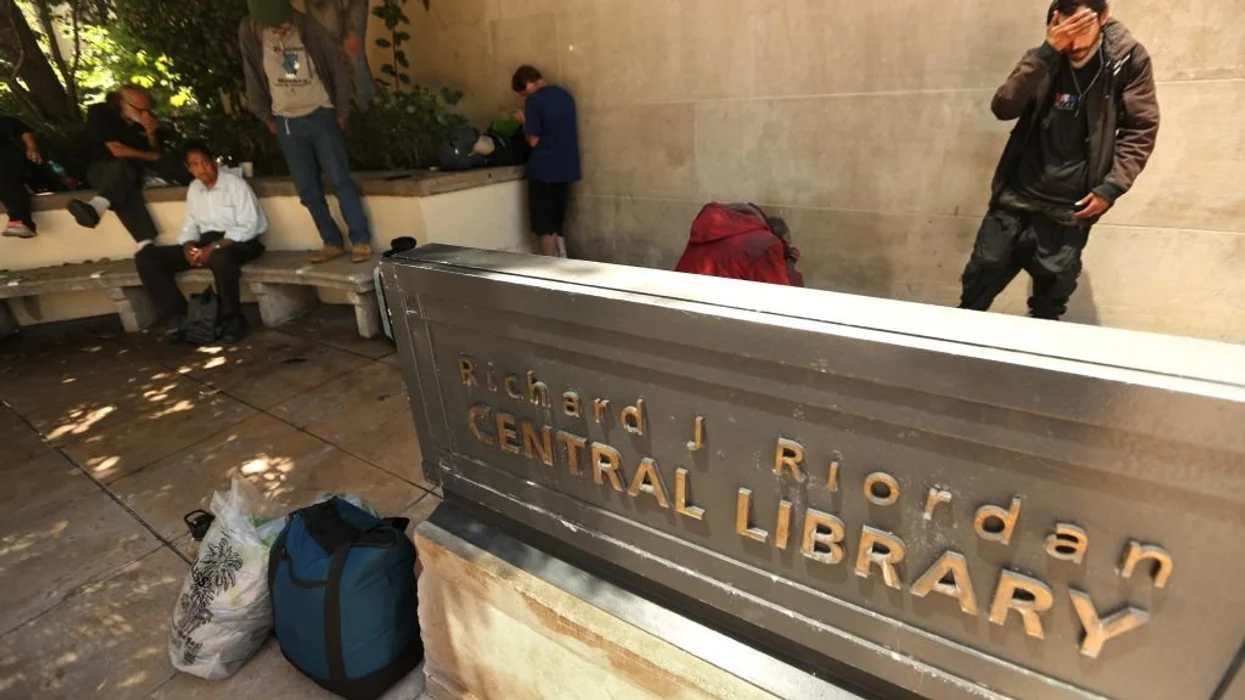
© 2025 Blaze Media LLC. All rights reserved.
"...not sustainable."
Open enrollment for the Obamacare exchanges at the state and federal level began Sunday and will last through Jan. 31, 2016, at a time when the troubled health care law continues to face criticisms.
Here are five recent problems for the embattled Affordable Care Act the as open enrollment begins:
 Andrew Harrer/Bloomberg via Getty Images
Andrew Harrer/Bloomberg via Getty Images
1. Far Below Expectations
In 2014, the Congressional Budget Office estimated the biggest surge in enrollment would come in 2016 when exchanges were expected to reach 20 million enrollees. The CBO projected the number would keep increasing before leveling off at 22 million in 2025.
Even after an adjusted prediction in March, the CBO said the 2016 number would be 11 million, which is even above what the administration is now predicting.
The Obama administration is projecting 10 million will sign up for 2016, an increase of 100,000 from the previous year.
Health care analyst Robert Laszewski told the New York Times, "Enrollment of 10 million people is not sustainable. You need almost twice that number to have a viable pool of policyholders with enough healthy people to pay for the sick."
In 2014, the administration had touted 8 million enrollees, only to see it reduced to 6.3 million by the end of the year.
The five largest health insurers reported in their third-quarter earnings for 2015 an 8.3 percent decline in Obamacare exchange enrollees.
The CBO previously was more enthusiastic than reality, projecting 13 million enrollees for 2015, when only 9.1 million signed up.
Still, one incentive (something many critics call a coercive tactic) that will keep the number of enrollees from dipping too low is an increased fine for not purchasing insurance. For 2015, the fine was $325 or 2 percent of income, whichever was greater. For 2016, the fine will be $695 or 2.5 percent of income, whichever is greater.
2. Costs Still Rising
One key promise of the Affordable Care Act was that it would make health insurance affordable.
Nevertheless, premiums increased an average of 7.5 percent for a benchmark plan across the 37 states that use the federal exchange, according to the Department of Health and Human Services.
The HHS report focused primarily on premiums for the silver plan, which is most widely purchased. The price hikes are hitting Oklahoma the worst, with a 36 percent increase. Meanwhile, Alaska, Montana and New Mexico are expected to see a 25 percent increase. Indiana, though, is actually expected to go down by 13 percent.
3. Collapsing Co-Ops
The House Energy and Commerce Committee will conduct a hearing Thursday looking at the failure of 11 out of 23 health co-ops that were set up across the country with the promise of saving money and creating competition but wound up costing taxpayers $1.1 billion after their implosion.
The loss of these co-ops also means hundreds of thousands of Americans will have to enroll into higher-cost plans for 2016.
When a “public option” was removed from the original Affordable Care Act legislation, the most liberal wing of the Democratic party, some who wanted a single-payer system, demanded something in its place. Thus, federally subsidized consumer operated health insurance plans were added to the final bill.
On Sunday, a health care co-op in Arizona folded, the latest in a round to do so. This year, co-ops in Iowa, Nebraska, Louisiana, Nevada, New York, Kentucky, West Virginia, Tennessee, Colorado, Oregon, South Carolina and Utah also went under.
The HHS Office of Inspector General recently reported that most of the remaining co-ops are losing money and have lower than expected enrollment.
4. Facing Defunding Vote in Senate
Senate Majority Leader Mitch McConnell (R-Ky.) has said the Senate will vote in November on the budget reconciliation bill that passed the House in October.
Because reconciliation is not subject to regular filibuster rules, there is no need to persuade 60 senators to come along: The bill could clear the Senate with a simple 51-vote majority.
The measure that passed the House repeals the penalties for the individual and employer mandate; eliminates the 40 percent excise tax on high-cost health plans, also referred to as the “Cadillac tax”; eliminates the medical device tax; and repeals the preventions and public health fund.
The bill furthers prohibits federal funding — including Medicaid dollars — for one year to abortion providers while the House investigates Planned Parenthood, redirecting funding to community health centers.
While President Barack Obama will almost certainly veto the defund measure, it could mark the first time Congress has been able to send a measure to his desk and some Republicans feel could force the president to the negotiating table.
5. Limited Access to Specialists
A study last week published in the Journal of the American Medical Association found that Obamacare exchange plans at both the federal and state marketplaces could significantly limit access to specialists, Reuters reported.
About one in seven ACA health insurance plans didn’t provide access to a specialist inside the network. The study examined 135 health insurance plans in 34 state marketplaces. Researchers looked for in-network specialists, including OBGYN, dermatologists, cardiologist and oncologists in each plan. Out of this survey, researchers found that 18 plans in nine states did not provide coverage for at least one specialist within a 100-mile radius, while 19 lacked coverage for a specialist with in a 50-mile radius.
Want to leave a tip?
We answer to you. Help keep our content free of advertisers and big tech censorship by leaving a tip today.
Want to join the conversation?
Already a subscriber?
more stories
Sign up for the Blaze newsletter
By signing up, you agree to our Privacy Policy and Terms of Use, and agree to receive content that may sometimes include advertisements. You may opt out at any time.
Related Content
© 2025 Blaze Media LLC. All rights reserved.
Get the stories that matter most delivered directly to your inbox.
By signing up, you agree to our Privacy Policy and Terms of Use, and agree to receive content that may sometimes include advertisements. You may opt out at any time.





